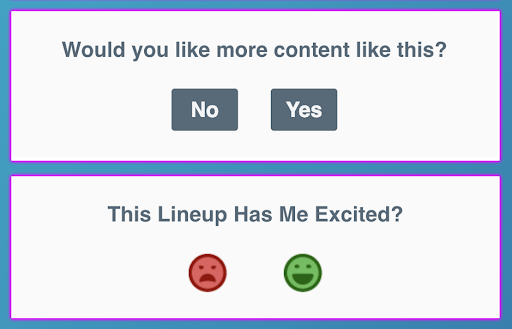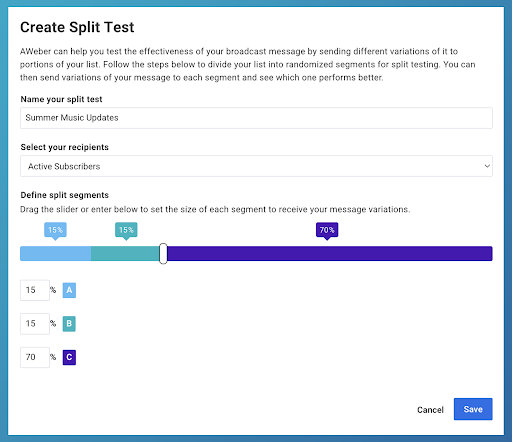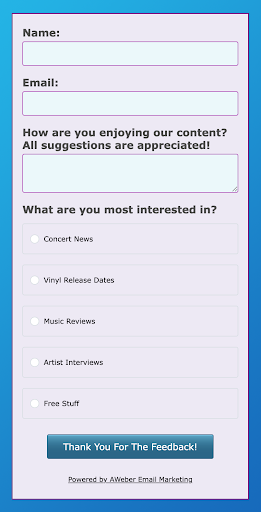The importance of actively listening
By Chris Henrich June 23, 2022
Your audience has all the insights you need to make informed decisions about your product or service offering. Actively engage with them and solicit their feedback to ensure you always deliver value.
Most decisions are made stronger after considering the perspective and feedback of the people they’ll impact most. For a business owner or creator like you, this means your customers or audience.
There are often multiple ‘right solutions’ to the challenges your audience faces over the course of any day. You are far more likely to discover and deliver the best ‘right solution’ when you directly ask for feedback and actively listen to what your audience has to say about you, your product, or your content.
The information you receive is a gift. One that provides you with all you’ll need to refine your offering.
Engage to inspire engagement
Don’t be afraid to be bold and engage fearlessly. You don’t know what you don’t know. Audience listening and engagement can come in many forms – social media, surveys, and even a/b split testing results. Regardless of the space your business occupies, there are simple questions you should ask to inspire and spark a conversation with your audience:
- If you’re providing a service, ask directly what your customers hope to achieve, and why.
- If you’re selling a product, gauge customer satisfaction and ask how you can add value or improve it.
- If you’re delivering content, ask your audience what they’d like to see you create.
As soon as you develop a clear understanding of your audience’s expectations or goals, you can refine your approach to deliver more.
One of AWeber’s Core Values is: “Invite feedback. Listen to what others say about us”
At AWeber, our team consistently captures customer feedback across multiple channels and queues including in-app surveys, user interviews, social media communities, or review websites. Of course, our support channels are a gold mine of user sentiment, too.
Our Email Experts in Customer Solutions always have their radar up. If a visitor mentions or even hints at a desire for specific functionality the team is quick to probe to gain a better understanding about why it’s important to them. We document that whole experience so that our product development teams can reference and consider as we prioritize what to build next.
Many of our recent releases and enhancements were inspired from conversations our team has had directly with our audience. No feedback is wasted. In fact, we’ve built tools to make it easier for you to see exactly what resonates with your audience to inform and inspire what you offer next.
Three ways to get feedback from your audience using AWeber
Sentiment surveys
Using Sentiment Surveys in your email is a great way to ask specific questions and get real-time feedback. Do you want to get feedback about how much people like or dislike an email, or a section of one of your emails? You can ask them to assign a numeric score and segment your results, like this:

Have a ‘yes’ or ‘no’ question you want an answer to? Use an email survey template.

Split testing
Make no mistake, this is a feedback tool. Testing multiple versions of your marketing emails, tracking opens, and examining link clicks allows you to hone in on what resonates most with your readers. Varying your subject lines, images, or content to identify exactly what your audience wants to see and how they prefer it packaged, is essential to success.

Feedback at the form
On any sign-up form, you can ask multiple choice questions to allow people to choose from preset answers.
Using custom fields, you can associate and assign folks a specific tag based on the answer they select. This allows you to segment, target, and engage with people based on that feedback you’ve received. Also, for more detailed responses, you can ask open-ended questions and provide folks a text field to reply.

Take Action
Collecting this data from your customers and audience is a rewarding practice, but only if you use the data they give you. To be a successful ‘active listener’ you must retain, reflect, and respond through action.
Make sure the feedback you’re provided informs improvement where needed and reinforces your confidence in doubling down on the areas where people are responding favorably. Thank your audience simply by delivering value and making a positive impact on their lives.

